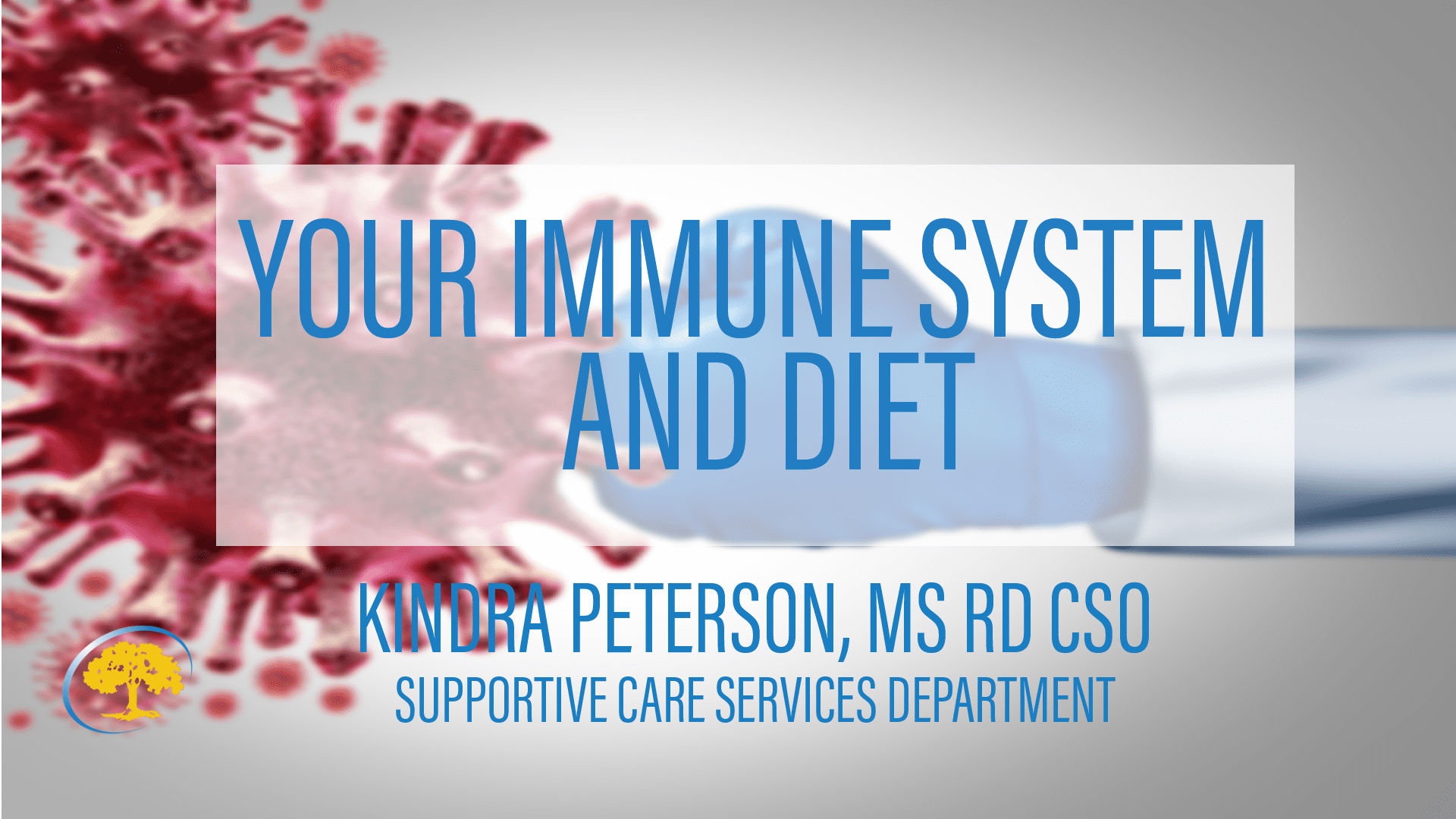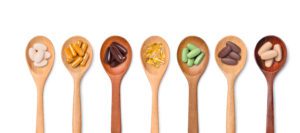
Posted 3 years ago
Your Immune System and Diet

However, the design of our immune system is complex and influenced by an ideal balance of many factors, not just diet, and especially not by anyone specific food or nutrient. Did you know that nearly 70% of your immune system is housed in your gut?
While frequent handwashing prevents the spread of illness, being mindful of the foods and beverages you consume can also help support your immune system and keep you well. Taking steps to ensure your digestive system is functioning properly is an essential part of maintaining your overall health.
When food is broken down during digestion, your gut works to absorb nutrients that are used to support a variety of bodily functions and eliminate waste from your body. Healthy bacteria found in your gut is also used to stimulate the development of T-cells, which target and destroy disease and other harmful cells.
When there is an imbalance in your gut, it can confuse your immune system, which will result in it attacking your own cells. If your immune system is busy reacting to healthy cells because of this confusion, it is not only easier for you to get sick but also harder for your body to recover.
Steps to support a healthy immune system:
Eat a balanced diet with whole fruits and vegetables, lean proteins, whole grains, and plenty of water. A Mediterranean Style diet is one option that includes these types of foods.
Drink plenty of fluids. Inadequate fluid intake can cause constipation, which will cause disruption to your gut health.
Don’t smoke, or stop smoking if you do
Limit or eliminate alcohol and caffeine. Alcohol can disrupt the balance of good and bad bacteria in your gut. Caffeine can also disrupt the balance of good and bad bacteria in your gut; however, if taken in moderation (only 1-2 cups per day) there is no harm.
If you do drink alcohol, do so in moderation, this is 1 drink a day for women and not more than 2 drinks per day for men. A drink is considered 12 ounces of regular beer, 5 ounces of wine, and 1.5 ounces of distilled spirits.
Perform regular moderate exercise. The recommendation is at least 150 minutes of moderate intensity exercise and muscle=-strengthening activities on 2 or more days per week.
Aim for 7-9 hours of sleep nightly. Try to wake up and go to bed around the same time each day to keep a sleep schedule.
Manage stress. Easier said than done I know, but try to find some healthy strategies for managing stress whether it is exercise, meditation, conscious breathing, or a hobby.
Wash hands throughout the day and practicing good hygiene.
Nutrients that have been shown to support immune function include:
Vitamin C – helps to stimulate the formation of antibodies and acts as an antioxidant.
Vitamin A (Beta-carotene) – assists with the health of your intestines, respiratory system, and acts as an antioxidant.
Vitamin E– promotes the neutralization of free radicals by functioning as an antioxidant.
Zinc – there are many zinc-dependent enzymes in our body and a deficiency has been linked with immune dysfunction.
Protein – specific amino acids found in proteins are essential for T-cell function, which are cells that protect the body against bacteria, viruses, or other microorganisms that can cause disease.
Specific foods that boost the immune system:
Citrus Fruits– almost all citrus fruits are high in vitamin C. Vitamin C is thought to increase the production of which blood cells, which are key to fighting infections. Because your body does not produce or store it, you need vitamin C in your diet daily.
Red Bell Peppers– Ounce for ounce, red bell peppers contain almost 3 times as much vitamin C as an orange and are a rich source of beta-carotene.
Broccoli– packed with vitamins and minerals including vitamins A, C, and E as well as fiber and many other antioxidant compounds, broccoli is one of the healthiest vegetables you can eat. To keep broccolis powers intact cook it as little as possible or not at all. Research has shown that steaming is the best way to keep more nutrients in your vegetables.
Garlic– full of immune-boosting compounds and found in almost every cuisine in the world, garlic is an easy addition to any diet.
Ginger– Along with its immune boosting properties may help decrease inflammation, help with nausea, and has been shown to decrease chronic pain and have cholesterol-lowing properties.
Spinach– not only rich in vitamin C, but spinach is also packed with numerous antioxidants and beta-carotene, which boosts our immune system. Similarly, to broccoli, spinach is healthiest when it is cooked as little as possible.
Yogurt– look for yogurts with the phrase “live and active cultures” on the label. Try to get plain yogurts rather than those that are flavored and loaded with added sugars. You can sweeten plain yogurt yourself with fruits, a drizzle of honey or even extracts (vanilla, coconut, almond, etc.). Yogurt can also be a great source of vitamin D, which helps regulate the immune system so look for brands fortified with vitamin D.
Almonds– Vitamin E is a powerful antioxidant that is key to a healthy immune system. Vitamin E is a fat-soluble vitamin, which means it requires the presence of fat to be absorbed properly. Almonds (and other nuts as well) are packed with vitamin E and healthy fats making them ideal for boosting the immune system. Other foods high in vitamin E include avocadoes and dark leafy greens.
Sunflower seeds– full of nutrients including phosphorus, magnesium, and vitamins B6 and E. Also incredibly high in selenium which is antioxidant and important for immune function.
Turmeric–this bright yellow spice has been used for years for its anti-inflammatory properties. Curcumin, which is the compound that gives turmeric its distinctive color is an immune booster and has some antiviral properties.
Green Tea– packed with compounds with strong antioxidant properties specifically eopigallocatehcin gallate (EGCG) which has been shown to boost immune function. Also contains the amino acid L-theanine which may aid in the production of germ-fighting compounds in our T-cells (immune system).
Papaya– Another fruit that is loaded with vitamin C. Papaya also has a digestive enzyme called papain, which has anti-inflammatory effects on the body. Papayas also provide potassium, magnesium, and folate, all of which are beneficial to your overall health.
Kiwi– naturally full of essential nutrients including potassium folate, vitamin K and vitamin C.
Poultry– Chicken and turkey are high in vitamin B6, which is an important player in many of the chemical reactions within the body. It is also vital for the formation of new and healthy red blood cells.
Shellfish– some types of shellfish are packed with zinc, and while zinc does not get as much attention as vitamin C and other nutrients our bodies need it so that our immune cells can function as intended. Varieties of shellfish that are high in zinc include
oysters, crab, lobster, and mussels. Zinc should come from food sources rather than supplements as too much zinc can actually inhibit immune system function… too much of a good thing can be a bad thing.
Variety is key; eating just one of these foods will not be enough, not even if you eat it constantly. Aim for a varied and balanced diet.
While many things in life seem out of our control, taking these steps, eating a well-balanced diet, exercising, relaxing, and managing stress and sleep can give you back some control and help you to maintain digestive health and support your immune system.



 Specific foods that boost the immune system:
Specific foods that boost the immune system: